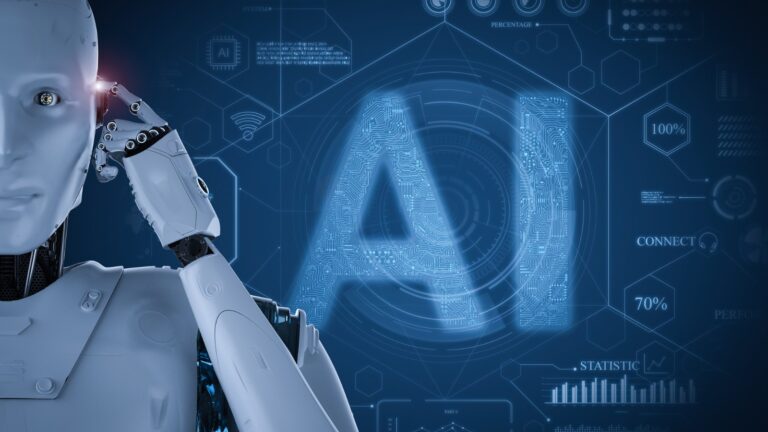
According to Statistica, ChatGPT reached one million users – a feat even the most successful social media platforms take months or years to achieve – just in five days. With 100 million active users gained in January 2023, ChatGPT is the fastest-growing platform in history to date, heightening the importance of accurately deciphering the true nature of this platform.
Since November 2022, multiple industries have used ChatGPT for various purposes, some finding it helpful and others regarding it with suspicion. A first-ever of its kind, ChatGPT is the latest breakthrough in creating a natural language processing technology driven by Artificial Intelligence (AI). Developed by OpenAI, a key aspect of such processing technology is for computer systems to understand and process human language.
There are currently many negative misconceptions of ChatGPT and other emerging AI-based technologies as computers are starting to gain the intellectual capacity to understand, create and analyse text faster than humans. As many assume ChatGPT and related emerging technologies as a threat, this blog will debunk common myths about ChatGPT and the birth of a new AI-based era.
Understanding the Technicalities of ChatGPT

As indicated by its very name, ChatGPT is engineered with the help of Generative Pre-trained Transformer 3 (GPT-3) technology, with subsequent GPT-3.5 and GPT-4 versions being integrated. A fascinating feature of ChatGPT is that it uses Natural Language Understanding (NLU) and Natural Language Generation (NGL) capabilities to carry out human-like conversations. Thus, individuals can ask stand-alone or follow-up questions with this AI tool as if having a dialogue. To effectively understand and answer each question, ChatGPT relies on multiple texts on the internet to learn different languages and gain general knowledge and cultural information. It further depends on the neural network architecture called ‘Transformer’ to learn the context and meaning of the dialogue and successfully comprehend the question, sentence or paragraph sent as inputs. It can understand grammar, syntax and related concepts through multiple training processes, thus, offering meaningful responses.
The bot has certain restrictions such that it may not always offer correct answers. However, it acknowledges its shortcomings at the very outset by, for instance, informing the user that it may not answer sensitive or inappropriate questions. ChatGPT measures its accuracy using techniques such as Recall-Oriented Understudy for Gisting Evaluation (the ROGUE metric) or the Bilingual Evaluation Understudy (the BLEU metric). As a tool currently in its research and development stage, ChatGPT relies on human feedback to improve its services.
Debunking Misconceptions of ChatGPT

Those who regard ChatGPT as suspicious are not afraid of advanced technologies but may be uninformed of their true nature. Here are seven myths debunked:
Everything is Correct

As noted previously, not all information ChatGPT provides is accurate. This is because ChatGPT is not necessarily a source of communication that offers objective data. While ChatGPT relies on human language, note that the system offers an answer based on the frequency of past words. Hence, instead of accurately understanding it, the system provides an answer without knowing the meaning of what is being produced. Given that ChatGPT also relies on training data, its answers could sometimes be biased when answering cultural or historical questions. For instance, information on marginalised communities is widely underrepresented in training data, thereby not offering the most valid answers.
ChatGPT is Only Suitable For Large Businesses

Given that ChatGPT is software that is easily accessible, a factor like finance, for instance, is not an aspect that needs to be considered when assessing whether it is suitable for a large or small business. In reality, ChatGPT is a great solution that offers personalised customer support and can even go on to generate leads. This is why ChatGPT is also suitable for small businesses, allowing them to improve their services and level the playing field with other larger companies. Keep in mind, however, that since this application is still in its development stages, it is not advised to invest in it right now and integrate it into a company’s processes.
ChatGPT Can Replace Humans

Contrary to everyone’s fear that ChatGPT can replace humans, in truth, no machine can completely be the perfect alternative or replacement for a human workforce. This is because humans bring a unique aspect to the table that is irreplaceable. This is innovation and humanity. There is no one better than a human who knows how to make meaningful connections and create a product in a way that holds a special place for some people. While machines and technologies can assist humans, it is unrealistic to think that an AI machine, no matter how advanced it is, can valuably act as a substitute for human connection and interaction.
ChatGPT is Unsafe

There is a presumption that conversations on ChatGPT can get leaked to a third party. This, however, is wrong as, firstly, a conversation is deleted the moment the app is closed, instantly losing access to data. Secondly, ChatGPT often warns users from inserting sensitive information within the platform. Anyone that logs into the platform, for instance, will see such a warning mentioned at the outset. Hence, while there is no evidence to suggest ChatGPT has leaked conversations where the user is careful and is more responsible in its interactions, there should be nothing to worry about.
It Leads People to Use It Unethically

Whether a student uses ChatGPT to do their homework or an employee uses it for similar unethical reasoning, this does not make the platform bad. In fact, the user’s behaviour calls into question unethical behaviour. The good news is that anyone using the platform unethically can easily be caught. For one thing, if a teacher copies and pastes an answer submitted and asks ChatGPT whether the bot gave it, it will acknowledge it. On the other hand, multiple tools now available clearly state the percentage of content taken by ChatGPT.
No Training is Required to Use ChatGPT

Just because a platform is user-friendly does not mean that it is easy to use. The majority of the misconception about ChatGPT, in fact, comes from those that have barely used the platform. The lack of knowledge on it may have resulted in them only considering the platform as an advanced AI tool. In the context of a business especially, ChatGPT must often be monitored to assess whether it is meeting business needs. In such a situation, offering proper training to employees ensures that they use it responsibly. Through this, not only are teams increasing their knowledge of AI technologies but they would also be abiding by a set of guidelines and best practices to avoid any ethical breaches.
AI Is a Threat to Human Existence

For most people, AI is associated with the rise of machines that take over human existence. One reason for such a misconception is the number of Hollywood films that have portrayed AI as a destructive force. Hence, even those in Generation Z (1997 – 2012) may tend to regard AI as a threat to human existence. Keep in mind an AI machine is built according to specific protocols in place. Hence, the safety of an AI-integrated machine depends on the user or the developer. In other words, if AI is biased by the humans that use or build it, it could be misused.
Why Is There a Tendency to Misunderstand ChatGPT?

As the above indicates, there is nothing specific about ChatGPT that can threaten humans or even the job market. Regarding the job market, ChatGPT may eliminate redundant and mundane job roles, although it would introduce more jobs as well. Consider the time period when robots were being introduced to manufacturing companies. Many people assumed a lot of people would be let off. While some did lose their jobs, it resulted in many new job opportunities being opened, whereby humans could more productively work in important roles and responsibilities as their prior time-consuming role was automated. Hence, ChatGPT is a revolutionary tool that upgrades human convenience and should not be considered a step back for humanity.
This article is prepared by Cerexio, a leading technology vendor that offers specialised solutions in the Advanced Manufacturing Technology Sector. The company is headquartered in Singapore and has offices even in Australia. Cerexio consists of a team of experts that have years of experience and holds detailed knowledge on a range of subject matters centric to the latest technologies offered in manufacturing and warehouse operations, as well as in predictive maintenance, digital twin, PLC & instrumentation setup, enterprise integrator, data analytics and total investment system.
